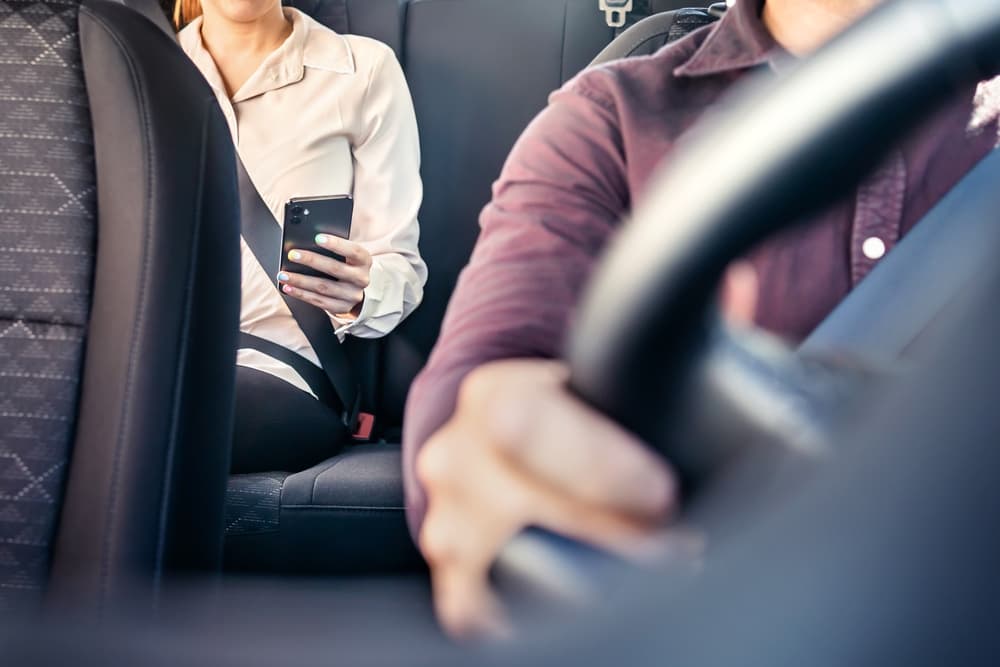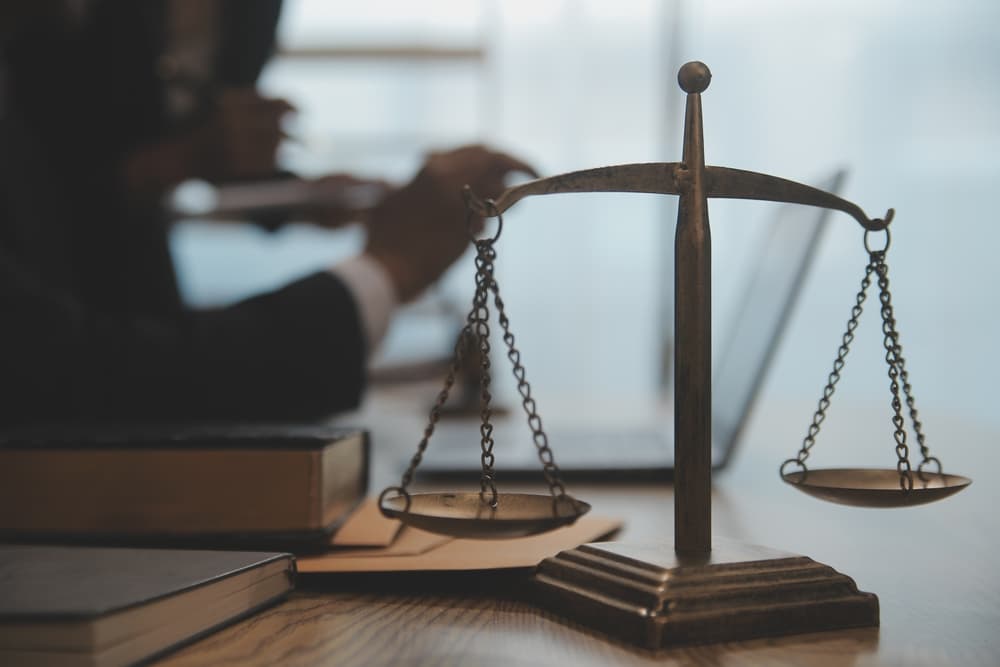If you’ve been injured in an accident while riding in an Uber, Lyft, or another rideshare service in Phoenix, Arizona, this question might be at the front of your mind.
Accidents are stressful enough, and the added layer of figuring out liability in a rideshare vehicle only adds to the confusion. The good news is that as a passenger, you do have rights, and there are steps you can take to pursue compensation for your injuries. A Phoenix rideshare accident lawyer can help you understand your legal options and fight for the compensation you deserve.
This blog will clarify your options, explain what laws apply to rideshare accidents in Phoenix, and explain how to proceed if you’re hurt while using these services.
Your Rights as a Passenger in a Rideshare Vehicle

Arizona law requires rideshare companies like Uber and Lyft to carry substantial insurance policies to protect passengers in the event of an accident. This differs from traditional auto accidents, where only drivers typically have insurance to cover losses.
When you’re the passenger in a rideshare vehicle, you’re not at fault, so you shouldn’t have to bear the financial burden of medical bills, lost wages, or any other costs arising from the accident.
Because rideshare companies have insurance policies designed for these situations, passengers can seek compensation, no matter who caused the accident.
Who Is Responsible for the Accident?
Before filing a claim, it’s important to determine who caused the accident. Liability in a rideshare accident can fall on one or more of the following:
- The Rideshare Driver
If the Uber or Lyft driver caused the collision due to negligence, such as speeding, distracted driving, or failing to follow traffic laws, their insurance policy will likely be the first point of contact. Fortunately, both Uber and Lyft carry liability insurance to cover damages when their drivers are at fault.- For example: If your rideshare driver runs a red light and you’re injured in the resulting crash, you could file a claim against the rideshare company’s insurance policy.
- Another Driver
If another driver is responsible for the accident, their auto insurance policy will be the primary source of coverage for your damages. However, if they are uninsured or underinsured, the rideshare company’s insurance can sometimes step in to fill the gap.- For example: If a distracted driver hits your Lyft vehicle while texting, you can file a claim with that driver’s insurance. If their coverage isn’t sufficient, Uber or Lyft’s policy may cover the rest.
- Third Parties
Sometimes, a mechanical failure or poorly maintained road conditions may contribute to a rideshare accident. Depending on the circumstances, liability could extend beyond the drivers involved and include entities like vehicle manufacturers or local governments.
What You Need to Know About Arizona Liability Laws for Rideshares
Arizona uses a fault-based system for car accidents, meaning the person responsible for the collision (or their insurance company) has to pay damages.
When you’re injured as a passenger, you don’t have to prove fault on your part, but it’s essential to determine whose negligence caused the accident. This establishes who’s liable and ensures you tap into the appropriate insurance coverage.
Additionally, Arizona follows a comparative negligence rule. If multiple parties contributed to the crash, liability is divided according to each party’s percentage of fault.
For example, if the rideshare driver and another motorist were partially at fault, each driver’s responsibility will be calculated accordingly.
What Happens If the Rideshare Driver Was Off-Duty but Still Picked You Up?
Rideshare platforms like Uber and Lyft operate through their apps, creating a clear system for tracking rides and ensuring insurance coverage. But what happens if your rideshare driver wasn’t logged into the app and still took you as a passenger?
This off-duty arrangement can create confusion, especially if an accident occurs. Awareness of how Arizona law treats these scenarios will help you know your rights and options.
Does the Rideshare Company’s Insurance Apply?
When a rideshare driver accepts a ride via the app, the company’s insurance policies typically cover accidents during that ride. However, the rules change if the driver is off-duty and operating outside the app’s system.
The rideshare company’s insurance will likely not cover any accidents that occur. Instead, you may need to rely on the driver’s personal auto insurance to seek compensation.
Many personal insurance policies have exclusions for commercial activities, including driving passengers for pay. If the rideshare driver didn’t carry commercial coverage and the company denied liability, recovering damages could be more difficult.
For example:
- If an off-duty rideshare driver offers you a ride as a side arrangement and runs a red light, causing an accident, you may find that neither the company’s insurance nor the driver’s personal policy will automatically step in to cover your injuries.
How liability can be affected
Liability in this situation depends largely on whether the driver’s actions are seen as part of their employment with the rideshare company. Rideshare companies often argue that they are not responsible for off-the-clock activities, placing full liability on the driver. This leaves passengers in a precarious position if the driver is underinsured.
Arizona law follows fault-based principles, meaning you’ll need to determine who is responsible for the accident. Proving fault becomes even more critical in cases involving off-duty drivers.
For instance, you’ll need to establish whether the driver caused the accident and what coverage is available to compensate you for medical expenses, lost wages, or other damages.
Steps to Take After an Accident with an Off-Duty Driver
If you’re injured in an accident involving an off-duty rideshare driver, taking the following steps can protect your rights and strengthen your claim:
- Ask for the Driver’s Full Insurance Information
Confirm whether the driver has personal insurance that includes commercial use. If they don’t, you may need additional legal guidance to determine alternative routes for seeking compensation. - Report the Incident to the Rideshare Company
Notify the rideshare company, even if the driver wasn’t logged into the app. While they may not take immediate responsibility, documenting the situation can sometimes encourage cooperation or assist in further investigations. - Document Communication About the Ride Arrangements
Any messages, texts, or calls arranging the ride outside the app can serve as evidence. These prove that the driver was functioning as part of their rideshare role—even if off the clock—which could affect liability. - Consult with Legal Professionals Familiar with Arizona Rideshare Laws
Many passengers in these situations don’t know where to turn. Since liability and recovery depend on the unique details of the case, working with legal experts who are familiar with local regulations can help identify potential solutions.
Can Passengers Still Recover Compensation?
Recourse for injured passengers depends on the driver’s coverage and the specific circumstances of the accident. While you may pursue compensation through the driver’s personal insurance, additional options might include:
- Uninsured or underinsured motorist coverage through your own auto insurance.
- Direct lawsuits against the driver, especially if their actions were clearly negligent.
Accidents involving off-duty rideshare drivers can be complex, but passengers still have rights. Exploring every available option for compensation is critical when the rideshare company denies coverage.
What Insurance Coverage Do Rideshare Companies Provide?
Uber and Lyft both offer insurance policies that cover passengers in the event of an accident.
Here’s a breakdown of their typical coverage:
- If the Rideshare App is On but the Driver Has No Passenger
- Contingent liability coverage is in place, which may include up to $50,000 in bodily injury per person, $100,000 per accident, and $25,000 in property damage.
- If the Driver Is Actively Transporting a Passenger
- Both Uber and Lyft provide up to $1 million in liability coverage, as well as uninsured/underinsured motorist coverage. This means you’re protected even if the other driver involved doesn’t have enough insurance.
Knowing how these policies work helps you understand what compensation you could be entitled to if you’re injured.
What Compensation Is Available to Passengers in Rideshare Accidents?
If you’ve been hurt in a rideshare accident in Phoenix, compensation can cover different aspects of your losses:
- Medical Expenses
This includes hospital bills, rehabilitation, prescriptions, and ongoing care related to your injuries. - Lost Wages and Loss of Future Earnings
If your injuries prevent you from going to work, you can seek damages for the income you miss out on. Serious injuries may also result in a reduced capacity to earn in the future, which can be included in your claim. - Pain and Suffering
Accidents can leave emotional scars as well as physical ones. Damages for pain, suffering, and emotional distress account for how your quality of life has changed due to the accident. - Property Damage
Although rare for passengers, compensation may also apply if any personal belongings were damaged in the crash.
Common Challenges Passengers Face When Filing Claims
Rideshare accident claims often involve multiple parties, leading to disagreements about who is liable. For instance, insurance companies for the rideshare driver and the at-fault driver may try to shift the blame to avoid paying out. This makes it vital to present clear documentation of your injuries and evidence of fault.
Another challenge may arise if the at-fault driver is uninsured or underinsured, though rideshare insurance policies often help cover these gaps.
How Long Do You Have to File a Claim?
Arizona law sets a time limit, called the statute of limitations, for filing personal injury claims. For most car accident injuries, including those involving rideshares, you have two years from the date of the accident to file a claim.
Missing this deadline could result in losing your right to compensation entirely.
There are exceptions to this rule, such as if the victim is a minor or if the responsible party delays the discovery of evidence related to the case.
Still, acting promptly can help you avoid unnecessary delays or complications later.
Should You Handle the Claim Yourself?
Filing a claim after a rideshare accident might seem straightforward, but the reality is far from simple. Without legal guidance, you may find it challenging to gather the necessary evidence, negotiate with multiple insurance companies, or determine the full extent of your damages.
While seeking advice is a personal decision, many people feel that working with an experienced attorney gives them peace of mind and better results.
Contact Kurtz Riley Law Group for Guidance

If you’ve been injured as a ride-sharing vehicle passenger and need help filing a claim, Kurtz Riley Law Group in Phoenix, Arizona, is here to assist.
Our team of personal injury attorneys understands the complexities of these cases, and we’re committed to helping injured victims get the compensation they deserve. Call us today at (623) 303-5754 to discuss your case.